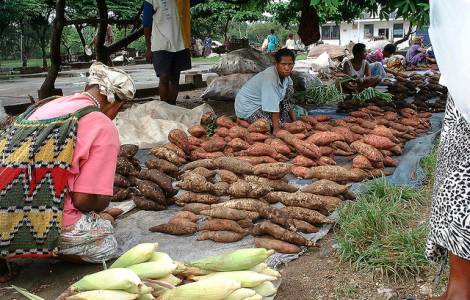
TANAKA Juuyoh
Port Moresby (Agenzia Fides) - On top of the interior highlands of Papua New Guinea, the most populous island in the Pacific with 7.3 million inhabitants, rural communities carry out strenuous work in the wilderness, almost without any basic services, with serious consequences for their health. Over 80% of the population carry out subsistence agriculture and community gardens are a characteristic of the landscape; however, malnutrition is widespread, especially among children. In 2014, the United Nations Fund for Children (UNICEF) had declared that this health problem, responsible for almost half of hospital admissions, was a "silent emergency" in the Country. The problem is not the amount of food, but the lack of information on nutrition for mothers during pregnancy and the first six months of a child's life.
According to the World Bank, breastfeeding in Papua New Guinea drastically decreases by 80%, when the baby is one month old, to 20%, when it is 6. Malnutrition appears when the necessary foods are not taken. The consequences registered are: underweight, stunted growth, muscle loss and reduced ability to concentrate, as well as greater vulnerability to diseases such as pneumonia and diarrhea, the main cause of mortality in children under five, 63 per 1,000 live births, well above the world average of 43. Specialists of the Medical Association of Papua New Guinea, argue that it is necessary to expand the rural health services. The Country has an average of 0.5 doctors for every 10,000 people, and over 80% work in the cities. The National Research Institute explained that 67% of health facilities need maintenance or renovation. (AP) (Agenzia Fides 12/01/2016)